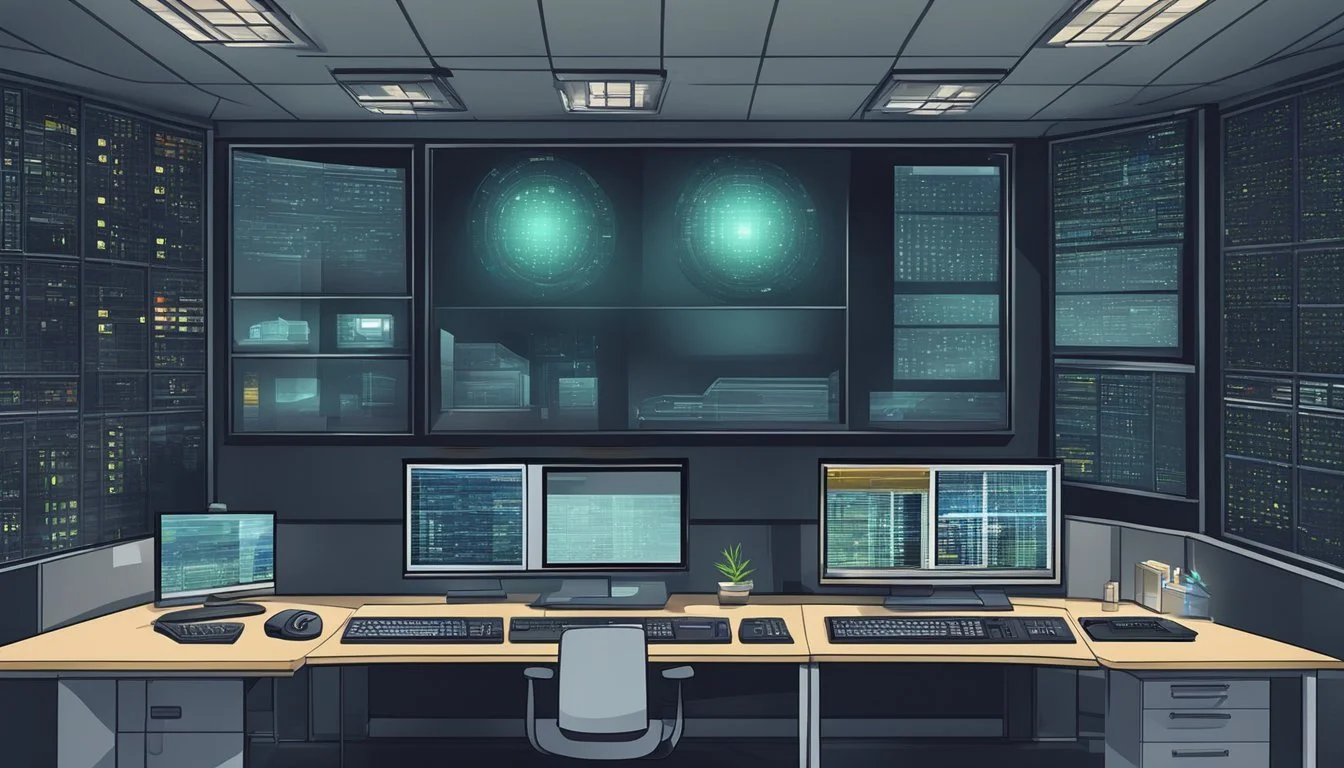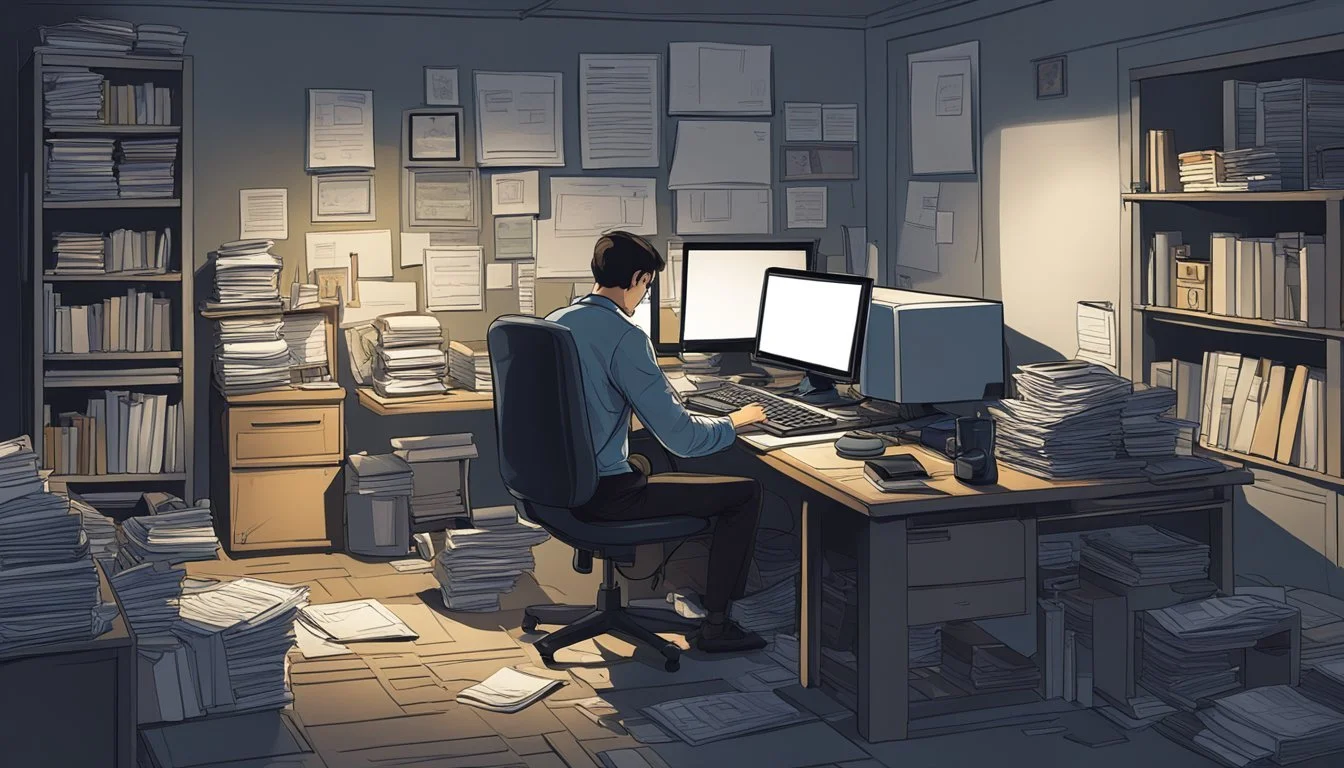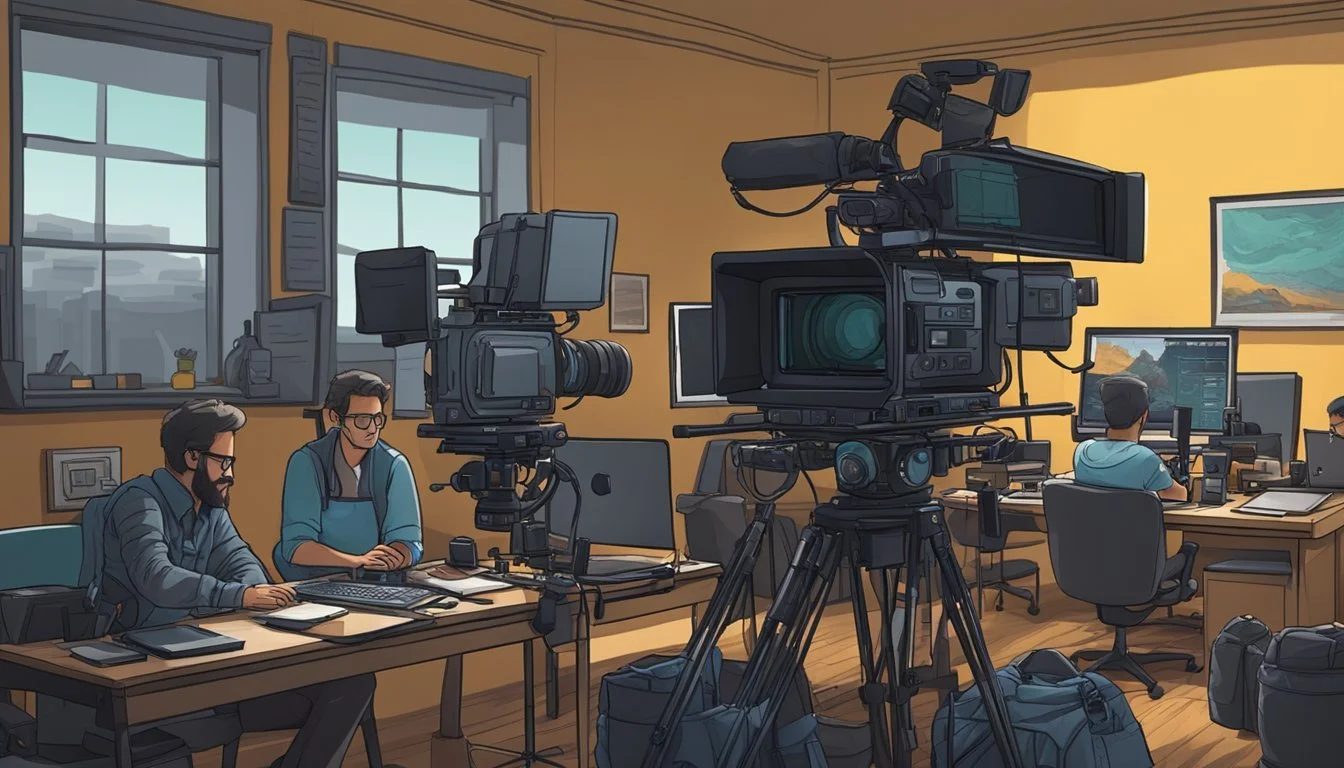Inside the Whistleblower's World: Citizenfour Documentary Exposes Shocking NSA Secrets!
Citizenfour offers a gripping inside look at one of the most significant whistleblowing events in recent history. This 2014 documentary, directed by Laura Poitras, captures the unfolding story of Edward Snowden as he reveals classified information about the NSA's mass surveillance programs.
The film provides unprecedented access to Snowden during the pivotal days when he first disclosed top-secret documents to journalists. Viewers witness tense moments in a Hong Kong hotel room as Snowden, Poitras, and journalist Glenn Greenwald discuss the implications of releasing this sensitive information to the public.
Citizenfour won the Academy Award for Best Documentary Feature in 2015, cementing its place as a crucial piece of investigative journalism. The film raises important questions about privacy, government overreach, and the balance between national security and civil liberties in the digital age. Its real-time narrative style and high-stakes subject matter make it a compelling watch for those interested in politics, technology, and human rights.
The Genesis of 'Citizenfour'
'Citizenfour' emerged from a series of encrypted emails and clandestine meetings that would expose massive government surveillance programs. The documentary's origins involve a whistleblower's bold decision and a filmmaker's commitment to telling a controversial story.
Edward Snowden's Involvement
In January 2013, Edward Snowden reached out to filmmaker Laura Poitras using the alias "Citizenfour." He chose Poitras due to her previous work on surveillance topics. Snowden provided classified NSA documents revealing extensive global surveillance programs.
The former intelligence contractor arranged meetings in Hong Kong to share his knowledge. Glenn Greenwald, a journalist, joined Poitras to interview Snowden and report on the leaked information.
Snowden's decision to become a whistleblower formed the core of the documentary's narrative. His revelations sparked global debates on privacy and government overreach.
Laura Poitras's Direction
Laura Poitras brought her expertise in documenting post-9/11 America to 'Citizenfour.' She filmed the Hong Kong meetings with Snowden, capturing pivotal moments as the story unfolded.
Poitras's direction focused on presenting Snowden's disclosures without sensationalism. She aimed to let viewers form their own opinions about the whistleblower and his actions.
The filmmaker faced challenges during production, including government surveillance and border detentions. Despite these obstacles, Poitras completed the documentary, which premiered at the New York Film Festival in 2014.
'Citizenfour' won critical acclaim, including an Academy Award for Best Documentary Feature in 2015. Poitras's work provided an intimate look at one of the most significant leaks in U.S. history.
Content and Themes
"Citizenfour" exposes the far-reaching surveillance activities of the U.S. government. The documentary delves into the NSA spying scandal, explores the tension between security and privacy, and examines the public's response to these revelations.
NSA Spying Scandal
Edward Snowden, a former NSA contractor, leaked classified documents revealing extensive surveillance programs. These programs collected vast amounts of data from phone calls, emails, and internet activity of millions of Americans and foreign nationals.
The film shows Snowden meeting with journalists Glenn Greenwald and Ewen MacAskill in a Hong Kong hotel room. He explains the scope and capabilities of NSA surveillance systems, including PRISM and XKeyscore.
Snowden's disclosures shed light on the NSA's global surveillance network. The agency tapped into undersea fiber optic cables and partnered with tech companies to gather user data.
Surveillance and Privacy
"Citizenfour" raises critical questions about the balance between national security and individual privacy rights. The documentary highlights how modern technology enables mass surveillance on an unprecedented scale.
The film explores the concept of metadata collection. This practice allows the NSA to track communication patterns without accessing message content, creating detailed profiles of individuals' lives and relationships.
Snowden argues that widespread surveillance erodes democratic freedoms. He emphasizes the importance of privacy for personal development, free expression, and political dissent.
Public Reaction and Impact
The revelations sparked intense debate about government overreach and digital privacy. Many expressed shock at the extent of surveillance, while others defended it as necessary for national security.
The documentary shows global protests against mass surveillance. Civil liberties groups and tech companies pushed for greater transparency and stronger privacy protections.
Snowden's disclosures led to legal challenges and policy changes. Some countries implemented stricter data protection laws. Tech companies increased encryption efforts to protect user data from government snooping.
The film captures the personal cost of Snowden's actions. It shows him seeking asylum and facing potential prosecution, highlighting the risks whistleblowers face when exposing government secrets.
Production and Filming
Laura Poitras directed Citizenfour, capturing Edward Snowden's revelations in real-time. The film's production involved careful planning, covert filming, and extensive use of archival materials.
Filming Process
Poitras traveled to Hong Kong in June 2013 to meet Snowden. She filmed their encounters in a hotel room over eight days. The director used a small camera to maintain a low profile. Snowden's interviews formed the core of the documentary.
Glenn Greenwald and Ewen MacAskill joined Poitras in Hong Kong. Their discussions with Snowden were also recorded. The filmmakers captured tense moments as Snowden prepared to go public with his information.
Challenges in Production
Security concerns dominated the production. Poitras worked under constant threat of surveillance. She used encrypted communications and took precautions to protect her footage.
The team faced legal risks due to the sensitive nature of Snowden's disclosures. They had to carefully consider which information to include in the film.
Editing the documentary proved challenging. Poitras needed to balance telling Snowden's story with protecting ongoing journalistic work and sources.
Use of Archive Footage
Citizenfour incorporates archival material to provide context. News clips show the public reaction to Snowden's revelations. These segments help viewers understand the global impact of the NSA leaks.
The film features footage of government officials testifying about surveillance programs. These clips contrast with Snowden's disclosures, highlighting the disconnect between public statements and actual practices.
Poitras also included earlier interviews with surveillance experts and whistleblowers. This archival content establishes a historical backdrop for Snowden's actions.
Reception and Recognition
"Citizenfour" garnered widespread acclaim and numerous accolades for its gripping portrayal of Edward Snowden's NSA revelations. The documentary's impact resonated strongly within the film industry and beyond.
Critical Acclaim and Feedback
"Citizenfour" received overwhelming praise from critics and audiences alike. Many lauded its taut narrative, real-time storytelling, and intimate access to Snowden during a pivotal moment in history. The film was commended for its journalistic integrity and its ability to convey complex issues in an accessible manner.
Critics highlighted the documentary's tension-filled atmosphere and its significance as a historical record. The New York Times called it "a primal political fable for the digital age," while The Guardian described it as "taut, disturbing, and eminently well-made."
Awards and Nominations
"Citizenfour" earned numerous prestigious awards and nominations. The film's crowning achievement was winning the Academy Award for Best Documentary Feature in 2015. This recognition solidified its place in cinematic history and brought wider attention to its subject matter.
Other notable accolades include:
BAFTA Award for Best Documentary
Independent Spirit Award for Best Documentary
Directors Guild of America (DGA) Award for Outstanding Directorial Achievement in Documentary
Cinema Eye Honors for Outstanding Achievement in Nonfiction Feature Filmmaking
The film also received nominations from the Satellite Awards and various critics' associations, further cementing its status as a landmark documentary.
Release and Distribution
Citizenfour premiered at major film festivals before its wider release. The documentary employed strategic distribution methods to reach global audiences.
US Premiere at New York Film Festival
Citizenfour debuted at the New York Film Festival on October 10, 2014. The prestigious event provided an ideal platform to introduce the film to American audiences and critics.
The premiere generated significant buzz due to the controversial nature of the documentary's subject matter. Edward Snowden's revelations about NSA surveillance were still fresh in the public consciousness.
Festival attendees and reviewers praised director Laura Poitras for her access to Snowden and her ability to create tension in the real-time unfolding of events.
UK Premiere at BFI London Film Festival
The documentary made its UK debut on October 17, 2014, at the BFI London Film Festival. This screening marked Citizenfour's introduction to European audiences.
British viewers were particularly interested in the film due to the UK's involvement in global surveillance programs. The premiere sparked discussions about privacy rights and government overreach.
Critics at the London festival commended the film's pacing and its portrayal of Snowden as a complex figure rather than a simple hero or villain.
Global Distribution Strategies
After its festival premieres, Citizenfour employed a multi-faceted distribution approach. The film received a limited theatrical release in select cities, targeting politically engaged audiences.
Simultaneous digital distribution allowed wider access through video-on-demand platforms. This strategy helped the documentary reach viewers who might not have access to art house theaters.
Television broadcasts on channels like HBO further expanded the film's reach. International distribution deals ensured Citizenfour could be seen in countries where its subject matter was particularly relevant.
The filmmakers also organized special screenings and Q&A sessions to engage directly with audiences and foster discussions about the issues raised in the documentary.
Legacy and Ongoing Influence
"Citizenfour" sparked global debates on privacy and surveillance, reshaping public discourse and the documentary genre. Its impact continues to reverberate years after its release.
Discussions on Privacy Post-Release
The film ignited widespread conversations about government surveillance and digital privacy. It exposed the extent of NSA programs, leading to legal challenges and policy changes. Tech companies bolstered encryption efforts in response to public concerns.
Edward Snowden's revelations in the documentary prompted legislative reforms, including the USA Freedom Act. This law imposed new limits on bulk data collection by intelligence agencies.
The film's release coincided with increased public skepticism towards government surveillance. It influenced how people view their online activities and data protection.
Influence on Documentary Filmmaking
"Citizenfour" set new standards for investigative documentaries. Its real-time approach to capturing historic events inspired filmmakers to pursue more immediate, high-stakes storytelling.
The film's critical acclaim, including an Academy Award win, elevated the profile of political documentaries. It demonstrated the power of documentary film to shape public opinion and policy debates.
Laura Poitras's work influenced a new wave of filmmakers tackling complex, controversial subjects. The film's success encouraged more documentarians to take on risky projects exposing government secrets.
"Citizenfour" also highlighted the importance of protecting journalistic sources, influencing how documentarians approach sensitive topics and whistleblower narratives.




